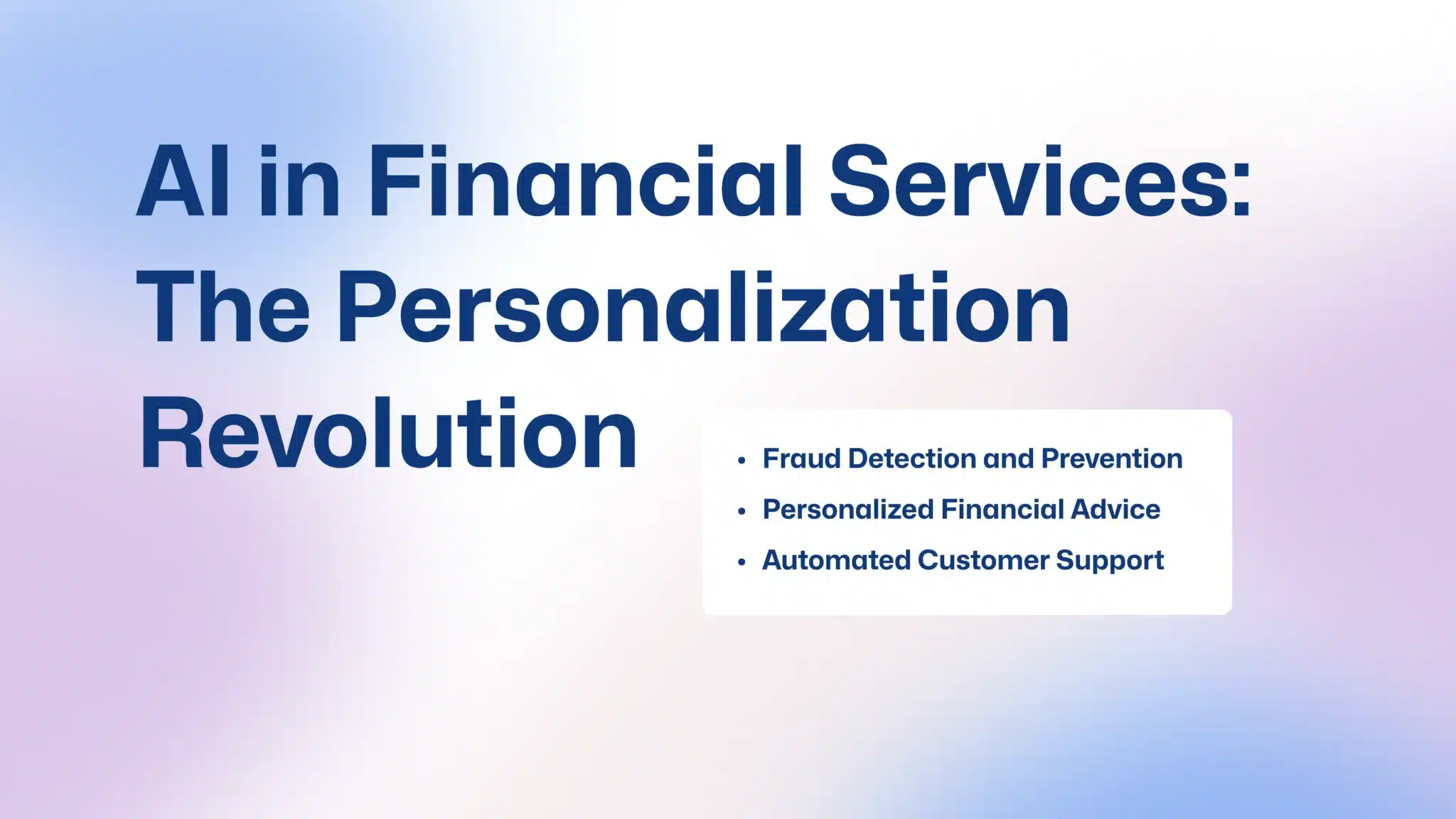India is experiencing a massive shift in its financial sector, thanks to the rise of FinTech. Over the last decade, the financial services sector in India has undergone significant changes. We now utilise digital payments and advanced tools, such as AI, to manage our finances. This is not just a short-term change—it is shaping the future of India’s economy. With over 1.4 billion people, India has a significant opportunity to utilise FinTech to provide more people and businesses with easy access to financial services.
So, what does the future of FinTech in India look like? In this Blog, we’ll dive deep into the current landscape and explore the trends and technologies that are shaping the future of FinTech in India.
The Digital Payments Revolution
Let’s begin with the most obvious change: the digital payments revolution. India has gone from a country with a heavy reliance on cash transactions to one leading the world in mobile payments. The rise of the Unified Payments Interface (UPI) is a prime example of this change. UPI has made it easy for everyone to send and receive money instantly—whether you live in a big city or a small village.
By November 2024, people in India made about 15.48 billion payments using UPI. This shows India is leading in fast, real-time payments. The ease of use and the low cost of UPI-based transactions have been game-changers. People are now using their smartphones to make instant payments, pay bills, and even transfer money between bank accounts.
- Mobile Wallets: Like Paytm, Google Pay, and PhonePe are popular apps. They help millions of people in India pay money easily using their phones.
- QR Code Payments: Its payments enable users to scan and pay using their mobile phones. This makes it easy for even small shops in remote locations to accept digital payments.
- Government Initiatives: The government runs programs like Digital India and Jan Dhan Yojana to help more people use digital payments. These programs let people use banking services through their mobile phones.
In the last 10 years, digital payments in India have grown very fast. UPI has become the main way people send and receive money using phones.
– FinGuru.
India’s rapid shift to digital payments is just the beginning. As smartphone penetration increases and internet connectivity improves, the future of digital payments looks incredibly bright.
Register Your LLP in India Hassle-Free
Get quick & affordable LLP registration in India with expert guidance and full compliance.
LLP company registrationRegTech Solutions in India: Simplifying Compliance
Alongside the growth of digital payments, there’s a rising demand for RegTech solutions. As FinTech companies grow, they must follow many rules. RegTech, or Regulatory Technology, helps them use tech to follow these rules easily and quickly.
The Indian financial market has been known for its evolving regulatory landscape. RBI, SEBI, and other groups often change the rules. This makes it hard for companies to keep up with the latest rules.
- KYC Automation: RegTech tools make the KYC process quicker and more correct. This helps businesses get new customers while still following the rules.
- AML Solutions: AML technology helps banks and other money companies find bad or strange payments and stop fraud.
- Real-time Reporting: RegTech tools help businesses make reports quickly for rule-makers. This reduces mistakes and keeps the data correct.
A report predicts that the RegTech market in India will experience rapid growth, at a rate of approximately 23.9% annually, and may reach $1.03 billion by 2029. As regulations become more stringent, RegTech will become even more crucial for FinTech in India.
RegTech helps money companies follow rules more easily, lower risks, and save money. This makes their work faster and better.”RegTech is helping financial institutions streamline compliance processes, reduce risks, and cut operational costs, paving the way for more efficient businesses.
Blockchain in FinTech: The Security Backbone
Next up is blockchain technology. Many people are familiar with blockchain due to Bitcoin, but it can accomplish much more in FinTech. Since a single entity does not control it, it helps make money services safer and more transparent.
Blockchain technology is already making waves in various areas of financial services in India. Some of its key applications include:
- Cross-Border Payments: India’s remittance market is one of the largest in the world. Blockchain makes sending money to other countries safer, faster, and cheaper. It removes middlemen and makes the process simple.
- Smart Contracts: Smart contracts work on their own. They help follow rules in deals without extra people, cut down on paper, save money, and work faster.
- Digital Identity Management: Blockchain can help keep digital IDs safe. It makes sure only the right people can see private money information.
A report says 41% of money companies in India are already trying out blockchain. This number will likely grow in the next few years.
“Blockchain’s ability to provide secure, transparent, and tamper-proof transactions will be crucial in driving India’s financial future.”
AI in Financial Services: The Personalization Revolution
Another technology transforming India’s FinTech space is Artificial Intelligence (AI). AI is now used in many money services to make them faster, safer, and more personal. It doesn’t just do tasks—it helps give each person a better experience.

- Fraud Detection and Prevention: AI can spot signs of fraud right away by finding patterns. This helps stop money crimes quickly.
- Personalized Financial Advice: AI helps companies give smart money tips based on how a person spends and what they want to achieve.
- Automated Customer Support: AI-powered chatbots are now a standard feature in many FinTech apps, providing instant support to users and improving the overall customer experience.
India is rapidly adopting AI in financial services, with over 55% of financial institutions in the country already using AI in some form. According to Statista, the market for AI in financial services in India is expected to grow by 38% annually over the next five years.
“AI is revolutionizing the way financial services are delivered in India, making them more personalized, secure, and efficient.”
The Future Outlook: Growth and Opportunities
The future of FinTech in India is filled with opportunities. The country’s FinTech market size is expected to grow from $31 billion in 2021 to $150 billion by 2025. This growth will happen because more people use smartphones, more pay online, and new tools like AI, blockchain, and RegTech are growing. The government is also helping FinTech grow.
- Financial Inclusion: As FinTech grows, more people will get access to money services. This will help people in rural areas where banks are hard to reach.
- Startups and Innovation: India’s growing startup ecosystem will continue to generate innovative FinTech ideas. These will benefit both businesses and individuals in numerous ways.
- Global Expansion: As FinTech grows rapidly in India, many companies are also looking to expand into other countries. This helps make India a top name in FinTech worldwide.
As FinTech keeps growing, it will change how money works in India and also around the world.
Conclusion: Embrace the Future of FinTech
The future of FinTech in India is full of promise, with digital payments, AI, blockchain, and RegTech solutions leading the charge. As these technologies continue to evolve, they will provide countless opportunities for businesses and consumers alike.
Are you ready to be a part of this revolution? Share your thoughts in the comments, or reach out to FinGuru for expert guidance on navigating the future of FinTech in India.



